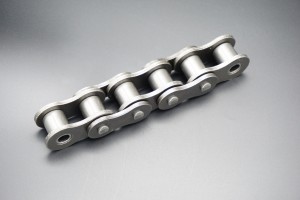Roller chains are an important component in several industries including manufacturing, automotive and agriculture. These simple yet effective mechanisms play a vital role in transmitting power and motion in a wide range of applications. In this comprehensive guide, we’ll delve into the world of roller chains, exploring their functions, types, maintenance, and applications.
What is a roller chain?
A roller chain is a drive chain consisting of a series of connected cylindrical rollers, usually made of steel, held together by pins. These chains are designed to transfer power from one sprocket to another, allowing for efficient transfer of motion and torque. Roller chains are commonly used in machinery, conveyors, bicycles, motorcycles and industrial equipment.
Types of roller chains
There are many types of roller chains, each designed for specific applications and operating conditions. The most common types include:
Standard roller chain: This type of chain is the most widely used and suitable for general purposes.
Heavy-duty roller chain: Heavy-duty roller chain is designed to withstand higher loads and harsh working environments, and is typically used in industrial machinery and equipment.
Double Pitch Roller Chain: These chains have a longer pitch length, making them suitable for applications requiring slower speeds and lighter loads.
Stainless Steel Roller Chain: Stainless steel roller chain is ideal for applications requiring corrosion resistance and is commonly used in food processing, pharmaceutical and outdoor environments.
Attachment roller chains: These chains have extension pins or special attachments that allow attachments or add-ons to be attached.
Roller chain maintenance
Proper maintenance is essential to ensure the longevity and performance of your roller chain. Here are some key maintenance practices to consider:
Lubrication: Regular lubrication is essential to reduce friction and wear between rollers and sprockets. Using a high-quality chain lubricant can significantly extend the life of your chain.
Tension adjustment: Appropriate tension is crucial for the smooth operation of the roller chain. Check and adjust tension regularly to prevent excessive wear and stretching.
Inspection: Regular inspection of chains, sprockets and related components is necessary to identify any signs of wear, damage or misalignment. Addressing problems early can prevent costly downtime and repairs.
Roller chain applications
Roller chains are widely used in various industries. Some common applications include:
Industrial machinery: Roller chains are widely used in manufacturing equipment, conveyors and material handling systems.
Automobile: In the automobile industry, roller chains are used in engines, transmissions and drive systems.
Agriculture: Roller chains play a vital role in agricultural machinery such as tractors, combine harvesters, and harvesters.
Construction: Construction equipment, such as cranes, excavators, bulldozers, etc., rely on roller chains for power transmission.
Transportation: Bicycles, motorcycles, and even some types of aircraft use roller chains for motion transmission.
In summary, roller chains are versatile and essential components in a variety of industries. Understanding the different types, maintenance practices and applications of roller chains is critical to ensuring their optimal performance and longevity. By implementing proper maintenance and selecting the right type of roller chain for a specific application, businesses can maximize efficiency and minimize downtime. Whether powering industrial machinery or bicycles, roller chains remain an essential element in the field of mechanical motion transmission.
Post time: Mar-18-2024

